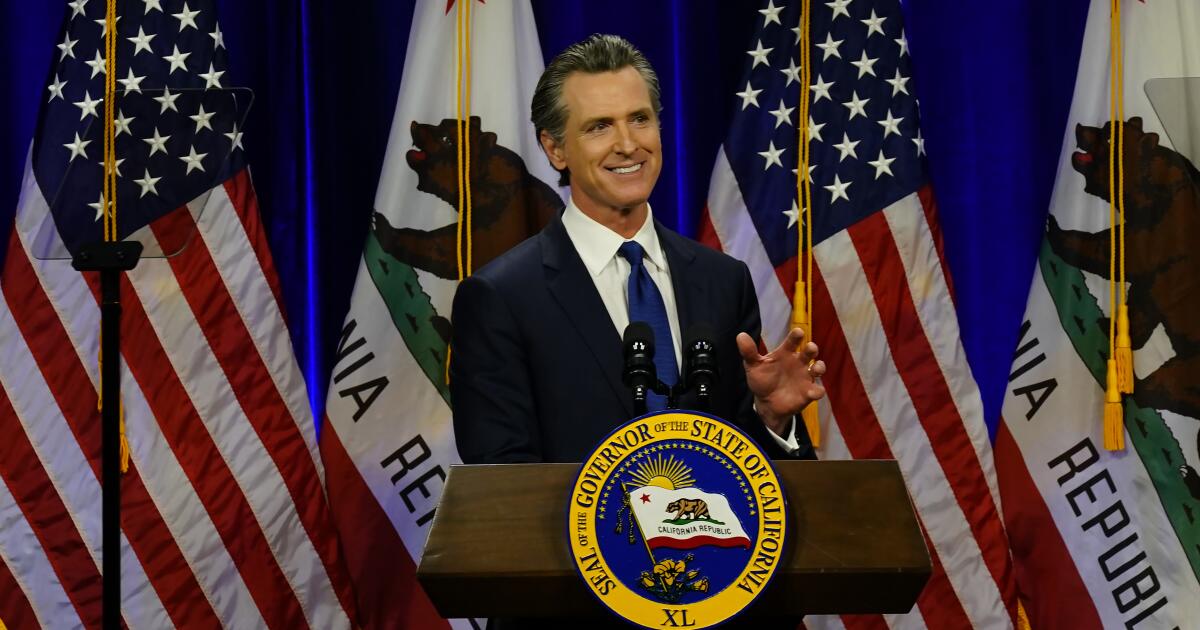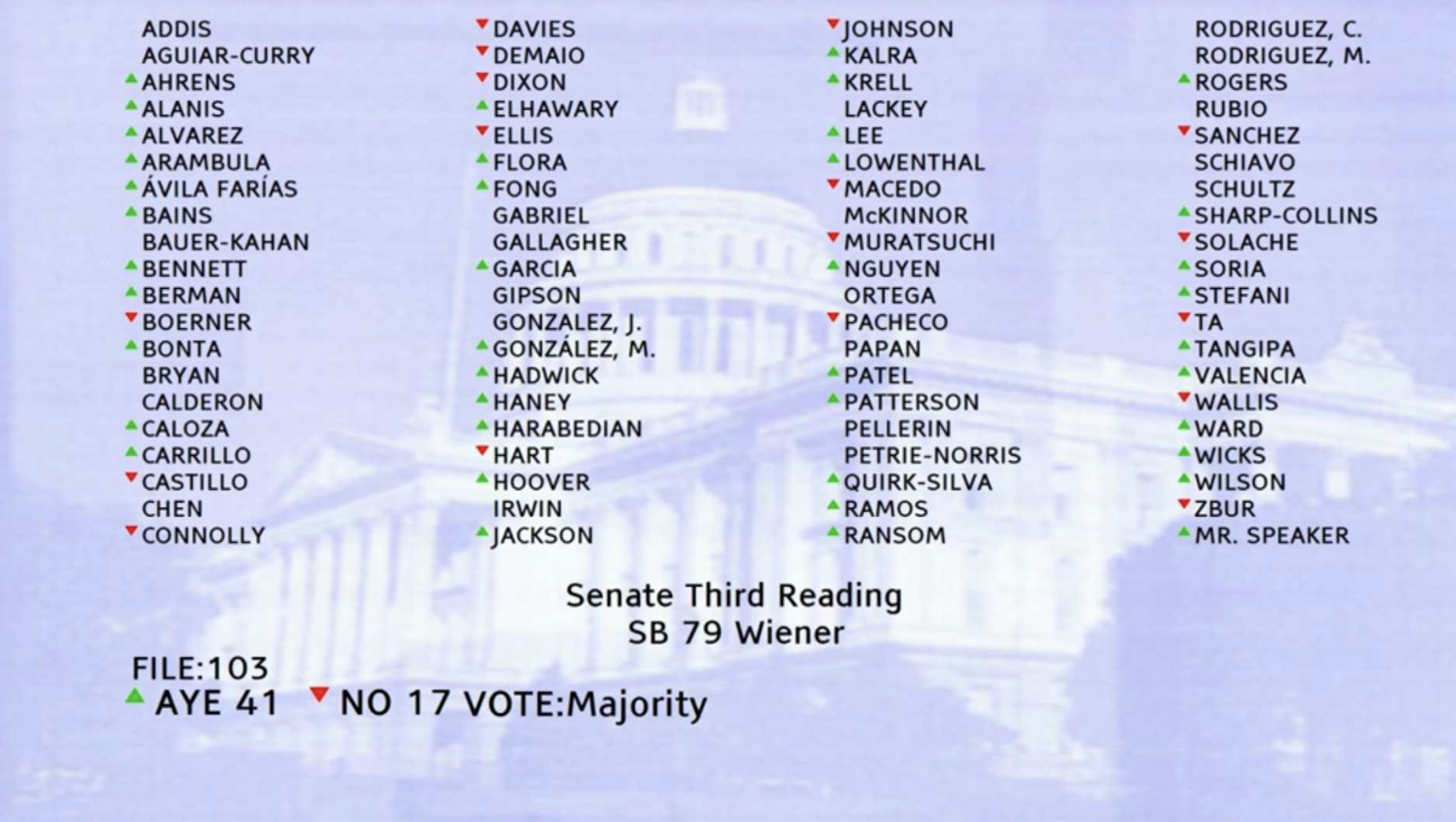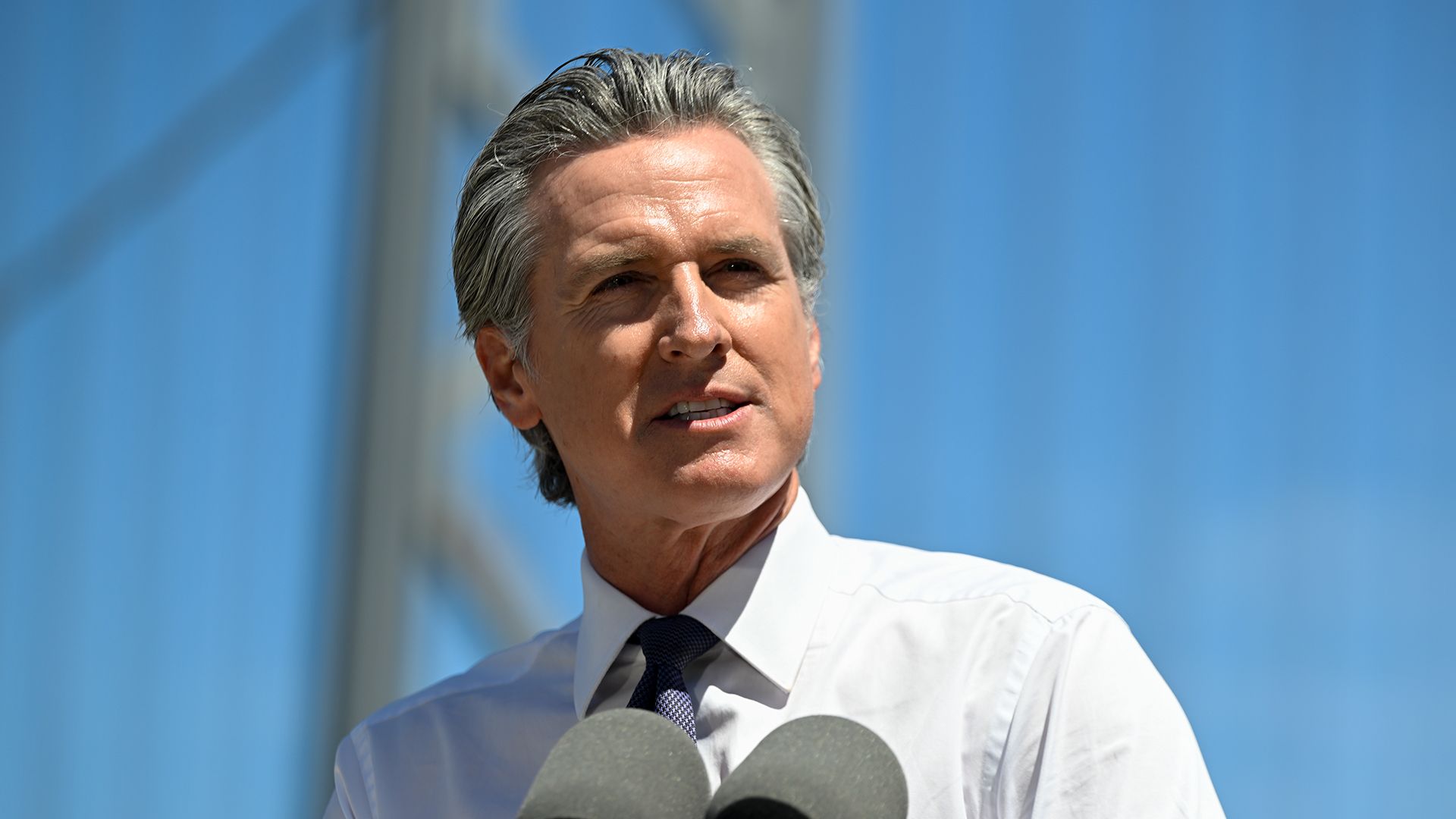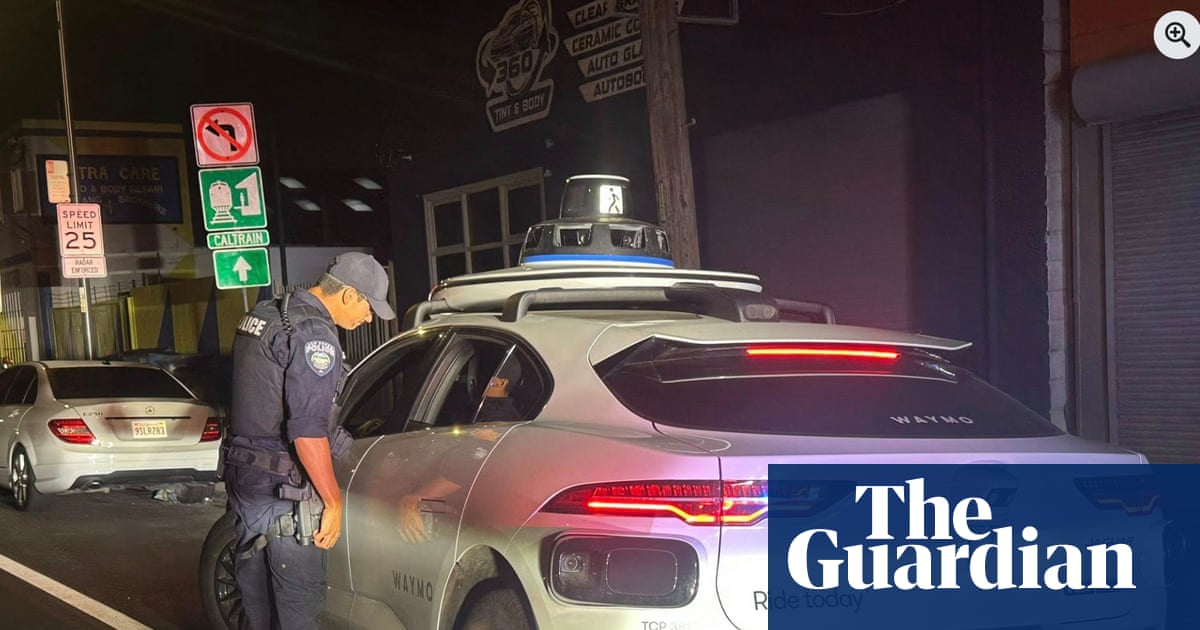#california-legislation
#california-legislation
[ follow ]
#antisemitism #immigration-enforcement #education-policy #ai-regulation #transit-oriented-development
fromABA Journal
3 days agoCalifornia targets attorney use of artificial intelligence through new legislation
Introduced by California Senate Judiciary Committee Chair Tom Umberg, a Democratic state senator from Santa Ana, California, the new bill codifies many guidelines for the use of AI in the practice of law that were published by the State Bar of California's Standing Committee on Professional Responsibility and Conduct in 2023, according to Law.com. Among its provisions, it requires attorneys to remove confidential personal identifying information from AI systems and to verify the accuracy of AI-produced material.
Artificial intelligence
California
fromKqed
4 days agoCalifornia Investigates Elon Musk's AI Company After 'Avalanche' of Complaints About Sexual Content | KQED
California strengthened laws to let prosecutors sue companies that recklessly distribute AI-generated non-consensual nude or sexual images, raising damages and lowering proof requirements.
California
fromwww.ocregister.com
4 days agoNo Kings': New California bill looks to prevent President Trump from seeking a third term
California bill would let the secretary of state bar constitutionally ineligible presidential candidates, including anyone attempting a third term, from the state ballot.
fromTasting Table
1 week agoA California Law Will Change How You See Menus Beginning July 2026 - Tasting Table
The law was part of a state senate bill that called for the amendment of the California Retail Food Code. The bill was signed by Governor Gavin Newsom in October 2025 and it comes into effect this July. That means from this summer forward, Californians can expect to see milk, eggs, fish, shellfish, tree nuts, peanuts, wheat, sesame, and soybeans listed as an ingredient on major restaurant menus.
Food & drink
fromLos Angeles Times
1 week agoCalifornia law let a politician avoid jail for child abuse charges. Lawmakers are furious
A mental health diversion granted to a former Kern County politician is coming under fire from numerous California lawmakers and child welfare advocates, who say a repeatedly amended state law is allowing an accused child abuser to avoid prosecution and possible jail time. Zack Scrivner, a former Kern County supervisor, was charged with felony child abuse in February after he was accused of inappropriately touching one of his children in 2024. But because of a Dec. 19 ruling by a judge, he will avoid a trial and instead be funneled into a mental health diversion program - an initiative aimed at helping defendants with mental health disorders get treatment instead of imprisonment for certain crimes.
California
California
fromLos Angeles Times
2 weeks agoCalifornia rolls out sweeping new laws for 2026, from cellphone limits in schools to a ban on cat declawing
California enacted nearly 800 bills in 2025 affecting health, education, legal claims, and policing, with many new laws taking effect on New Year's Day.
Higher education
fromThe Mercury News
2 weeks agoNew law streamlines housing development process for California's coastal universities
Assembly Bill 357 streamlines Coastal Commission approvals to accelerate and lower-cost development of student housing on California coastal university campuses starting Jan. 1.
California
fromwww.mercurynews.com
3 weeks agoTraffic death of Campbell boy leads to lower speed limit in school zones
California will adopt laws lowering school-zone speeds to 20 mph, speeding ballot counts, protecting consumers and animals, requiring rental price disclosure, and allowing rideshare unionization.
Privacy professionals
fromElectronic Frontier Foundation
1 month agoTrends to Watch in the California Legislature
California advanced privacy, transparency, and law-enforcement-accountability laws, including browser opt-out support, public court copying, bans on masked officers, and AI disclosure requirements.
fromKqed
1 month agoAll SF Firefighters Will Soon Have Equipment Free of Toxic 'Forever Chemicals' | KQED
Efforts to ban PFAS statewide have advanced this year: in October, Gov. Gavin Newsom signed AB 1881, introduced by San Francisco Assemblymember Matt Haney, which banned the use of PFAS in firefighting equipment for all California firefighters. And across the U.S., other departments have begun to make the transition: earlier this year, Providence, Rhode Island, rolled out new gear, and in 2024, Massachusetts passed a ban on the use of PFAS in firefighting PPE, set to take effect in 2027.
Public health
East Bay real estate
fromwww.housingwire.com
1 month agoSamara to add ADUs to five multifamily properties in the Bay Area
California's SB 1211 allows up to eight ADUs on multifamily parcels, enabling modular ADU installations to add housing and incremental rental yield on underutilized multifamily land.
fromInsideHook
1 month agoA Common Automotive Feature Also Makes Car Thefts Easier
As technology has advanced, so too has the range of what can be classified as a car key - which can increasingly refer to a device capable of operating with a keyless ignition system. The idea of being able to start a car just by pressing a button has its own appeal, but it can also come at a significant (and literal) cost.
California
fromwww.mercurynews.com
2 months agoCalifornians can now shoot swans year-round without a license
The picturesque wedding swan can now be legally shot in California year-round, without a license. Under a bill signed into law this month by Gov. Gavin Newsom, the mute swan has been added to the list of nongame birds that can taken or possessed at any time. Assembly Bill 764, by Jeff Gonzalez, R-Coachella, takes effect Jan. 1, 2026, and expires after five years.
Environment
fromThe Mercury News
2 months agoThe Trump administration wants to know more about the people on food stamps. How Gov. Newsom responded
A law that allowed the sharing of limitless amounts of personal data across the state to find people eligible for CalFresh was rescinded this week. On Monday, Gov. Gavin Newsom signed Assembly Bill 593 by Assemblymember Buffy Wicks, a Democrat from Oakland, that forbids state and local departments from sharing sensitive personal data to increase food stamp enrollment. RELATED: Gov. Newsom signs 'Safe Schools Act' taking unprecedented action against ICE in schools But only a year ago, it was Wicks who introduced that same data sharing initiative, to get more people enrolled in CalFresh, the state's federally funded food assistance program.
California
California
fromInside Higher Ed | Higher Education News, Events and Jobs
3 months agoNewsom Vetoes Bill Related to Reparations in College Admissions
Governor Gavin Newsom vetoed legislation allowing California colleges to give admissions preference to descendants of enslaved people, saying colleges can already do so.
fromThe Mercury News
3 months agoGlock ban, slavery reparations, ICE agent masks, more housing: Here are 10 key bills Gov. Gavin Newsom signed into law
ICE: Senate Bill 627, the "No Secret Police Act," by Sen. Scott Wiener, D-San Francisco, bans law enforcement officers from wearing face masks, except clear shields and other limited exceptions. The ACLU and other supporters say secret masked police are common in authoritarian countries, not democracies. Opponents, led by police groups, say masks are needed to protect officers from death threats. The Trump administration has told ICE to ignore the law, which may end up in court.
California
fromLGBTQ Nation
3 months agoGov. Gavin Newsom signs pro-LGBTQ+ bills, but vetos "critical" trans medication bill - LGBTQ Nation
On Monday, California Gov. Gavin Newsom (D) signed and vetoed the last of a slew of bills passed by the state legislature this year. Out of nearly a thousand measures awaiting his signature, Newsom signed 794 into law and vetoed 123. About the same ratio applied to bills designed to shore up state protections for transgender rights and the LGBTQ+ community, as the Trump administration's crusade against LGBTQ+ identity presses on.
California
fromStreetsblog
3 months agoThe Week(s) in Short Video - Streetsblog California
A lot of the videos produced for Streetsblog California focused on what the governor has, and hasn't, signed into law. They include a push for the governor to sign red-light camera reforms, a look at the bills we're still waiting for the governor to sign or veto, and announcements of the signing of a pair of controversial bills. Also, if you haven't voted on Prop. 50 just yet, Streetsblog breaks down how to do that and encourages a "yes" vote.
California
fromFast Company
3 months agoGovernor Newsom vetoed a bill restricting kids' access to AI chatbots. Here's why
The bill would have banned companies from making AI chatbots available to anyone under 18 years old unless the businesses could ensure the technology couldn't engage in sexual conversations or encourage self-harm. While I strongly support the author's goal of establishing necessary safeguards for the safe use of AI by minors, (the bill) imposes such broad restrictions on the use of conversational AI tools that it may unintentionally lead to a total ban on the use of these products by minors," Newsom said.
California
fromThe Verge
3 months agoCalifornia enacts its own internet age-gating law
The law mandates that device operating systems and app stores require users to enter their age or date of birth when setting up a new phone or computer. The new rules are slated to take effect on January 1st, 2027, and for devices set up prior to that date, the OS provider - like Apple or Google - must come up with a way for users to enter their ages by July 1st that year.
California
California
fromLos Angeles Times
3 months agoThis Central Valley serpent is California's new state snake. Can recognition save it from extinction?
California officially recognized the giant garter snake to raise public awareness for conservation as the endangered, wetland-dependent species faces habitat loss and climate-driven drought.
California
fromEater LA
3 months agoGovernor Newsom Just Signed a Handful of Bills to Support Restaurants. Here's What it Means for California.
California signed AB 592 and AB 671 to reduce restaurant permitting burdens, preserve outdoor dining flexibilities, and provide relief for small food businesses; two related bills await signature.
fromABC30 Fresno
3 months agoNew California law aims to stabilize insurance for people who can't get private coverage
The FAIR Plan is an insurance pool that provides policies to people who can't get private insurance because their properties are deemed too risky to insure. The number of homeowners forced onto the FAIR Plan has skyrocketed. With high premiums and basic coverage, the plan is designed as a temporary option until homeowners can find permanent coverage. But more Californians are relying on it than ever as increasingly devastating and destructive fires spark across the state, including in densely populated areas.
California
fromBusiness Insider
3 months agoCalifornia enacts law to prevent sexual abuse in K-12 schools following Business Insider investigation
California Gov. Gavin Newsom signed a bill into law on Tuesday aimed at preventing sexual abuse in K-12 schools in the state. The legislation was triggered by Business Insider's 2023 investigation into a California high school. The Safe Learning Environments Act, sponsored by state Sen. Sasha Renée Pérez of Pasadena, will require public and private schools in California to revise their comprehensive safety plans to specifically address sexual abuse and employee sexual misconduct.
California
Higher education
fromStreetsblog
3 months agoNewsom Signs Legislation to Streamline Student and Staff Housing at California Community Colleges - Streetsblog California
AB 648 authorizes California community college districts to build housing for students, faculty, and staff, overriding local zoning within a half-mile of campuses.
fromSan Jose Inside
3 months agoNew Laws Crack Down on Hate and Antisemitism in CA schools
We are also immensely grateful to Gov. Newsom, Pro Tem Mike McGuire, Speaker Robert Rivas and to so many of our non-Jewish colleagues of both political parties who have stood as staunch allies in the fight against hate. Together, we will continue to fight to ensure that students of all faiths and backgrounds are safe, welcome, and can thrive in our schools.
Social justice
California
fromForbes
3 months agoThis Week In Small Business Technology News: California Regulates AI, ChatGPT Adds E-Commerce And Slack Rolls Out An AI "Teammate"
California enacted SB 53 requiring developers of advanced AI systems to disclose safety and security protocols, report risks and cyberattacks, and provide whistleblower protections.
California
fromStreetsblog
3 months agoAdvocates: Governor Needs to Sign Bill to Modernize Red Light Regulations - Streetsblog California
SB 720 would modernize California red light camera programs by replacing criminal violations with $100 civil penalties, protecting records, and reinvesting revenue in traffic calming.
fromTruthout
3 months agoCalifornia Bill Could Set Dangerous Precedent Around Carbon Dioxide Pipelines
A California bill now awaiting Gov. Gavin Newsom's (D) signature would set a pathway to eliminate the state's trailblazing moratorium on pipelines used to transport carbon dioxide. The fossil fuel industry lobbied to shape the Democrat-sponsored legislation, which could allow such pipelines to be constructed without strict distance requirements around communities and sensitive wildlife habitats - raising fears that leaks or ruptures of the asphyxiant gas could occur close to people's homes.
California
fromLos Angeles Times
3 months agoNewsom signs AI transparency bill prioritizing safety
Gov. Gavin Newsom signed a bill Monday that will create new transparency measures for large AI companies, including public disclosure of security protocols and reports of critical safety incidents. Sen. Scott Wiener (D-San Francisco) said Senate Bill 53 will create "commonsense guardrails" to ensure groundbreaking innovations don't sacrifice safety and transparency amid the rapid growth of AI technologies.
Artificial intelligence
LGBT
fromPinkNews | Latest lesbian, gay, bi and trans news | LGBTQ+ news
3 months agoCalifornia gov Gavin Newsom urged to sign 'critical' trans rights bills into law
Californian trans groups urge Governor Newsom to sign five bills strengthening protections, privacy, safety, and declaring the state a refuge for trans people.
fromLos Angeles Times
3 months agoLoud TV commercials drive viewers crazy. California wants to quiet them down
Keller's husband is Zach Keller, legislative director for Sen. Tom Umberg (D-Santa Ana). Last year, when the pair became new - and newly exhausted - parents, their reprieve was watching a TV show on a streaming service while their daughter napped. Even though the TV and the baby were in separate rooms, a random commercial would "blare so loudly that it would startle [the baby] and wake her up," Keller told The Times.
California
California
fromThe Mercury News
3 months agoSurvivors of past Northern California wildfires shut out of last-minute bill adding $18 billion for state's restitution fund
California extended and replenished its Wildfire Fund with an additional $18 billion and a 10-year extension to address massive wildfire damages and utility liabilities.
California
fromwww.ocregister.com
4 months ago8 bills the California Legislature approved this year, from de-masking ICE agents to AI safeguards
California passed bills restricting law enforcement face coverings and identification, banning cat declawing, and targeting harmful AI companion chatbots, sending measures to the governor.
California
fromwww.berkeleyside.org
4 months agoBill allowing denser housing near BART stations and transit hubs passed by California lawmakers
California's SB 79 upzones land near transit stations, allowing residential buildings up to 75 feet and overriding local zoning to spur housing and transit use.
California
fromABC7 Los Angeles
4 months agoCalifornia lawmakers pass bill barring authorities from wearing face masks
California passed a law banning law enforcement officers, including immigration agents, from covering faces during operations, with limited exceptions and unclear enforceability against federal agents.
California
fromLos Angeles Times
4 months agoCalifornia lawmakers pass bill to grant priority college admission for descendants of slavery
California bill would allow colleges to optionally give admission preference to applicants who can prove direct descent from people enslaved in America before 1900.
fromThe Mercury News
4 months agoBill to cut fares for Uber and Lyft heads to Gov. Newsom's desk
The bill aims to reduce the cost of rideshare services for Californians by removing the requirement that rideshare drivers carry $1 million in coverage for accidents caused by other drivers who are uninsured or under-insured - a cost that today is passed on to riders in fees. The bill will lower the requirement to $60,000 in uninsured motorist coverage per individual and $300,000 per accident.
California
California
fromLos Angeles Times
4 months agoCalifornia lawmakers pass bill banning law enforcement officers from covering their faces
California will prohibit on-duty law enforcement, including federal immigration agents, from masking faces and require officers to identify themselves, with specified exceptions.
fromLos Angeles Times
4 months agoCalifornia's incarcerated firefighters, who make about $30 per day, could get a big raise
In howling winds and choking smoke during the January fires that devastated Altadena and Pacific Palisades, more than 1,100 incarcerated firefighters cleared brush and dug fire lines, some for wages of less than $30 per day. Those firefighters could soon see a major raise. On Thursday, California lawmakers unanimously approved a plan to pay incarcerated firefighters the federal minimum wage of $7.25 per hour while assigned to an active fire, a raise of more than 700%.
California
California
fromStreetsblog
4 months agoCap-and-Trade Reauthorization Legislation Makes the Deadline, Could Be Approved on Friday - Streetsblog California
California legislature reached a last-minute deal to reauthorize Cap-and-Trade, fixing housing and transportation funding formulas and adding a $250 million AB 617 appropriation.
[ Load more ]
































